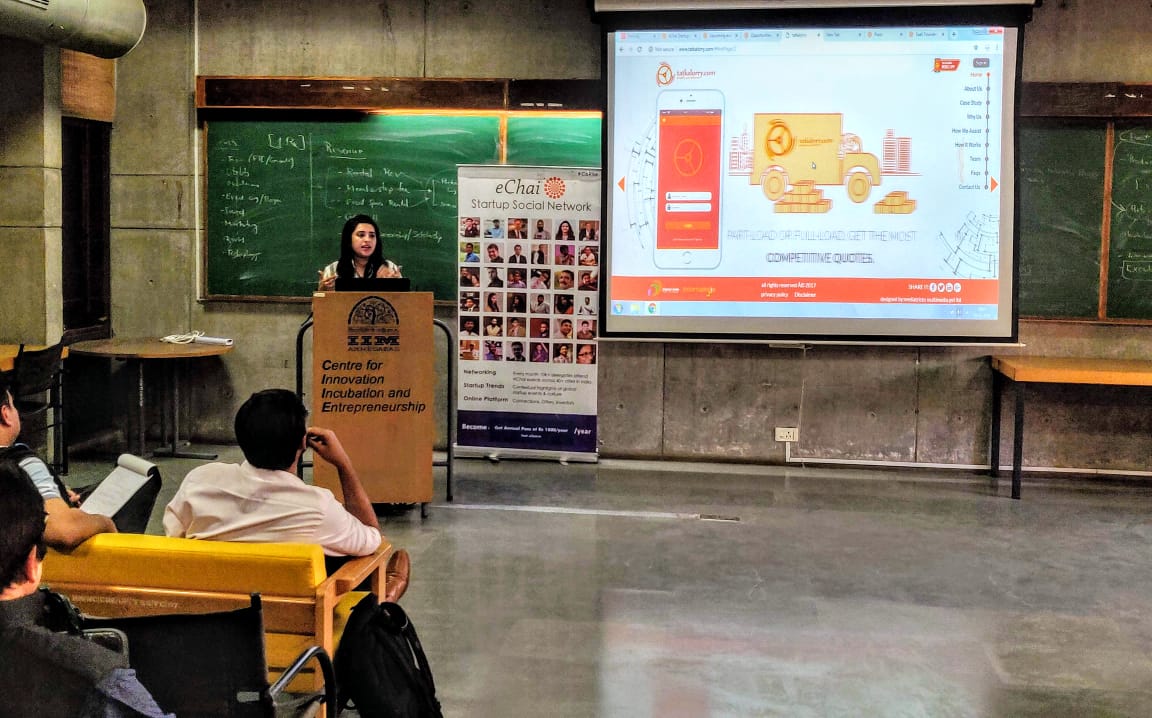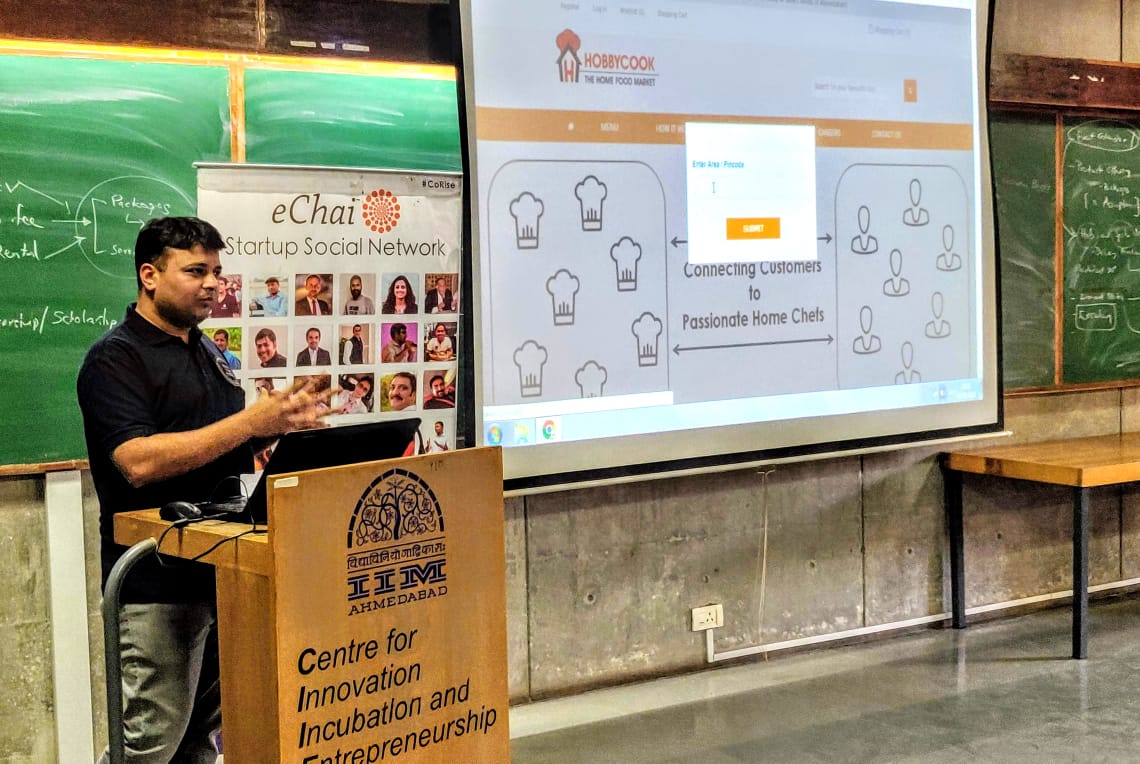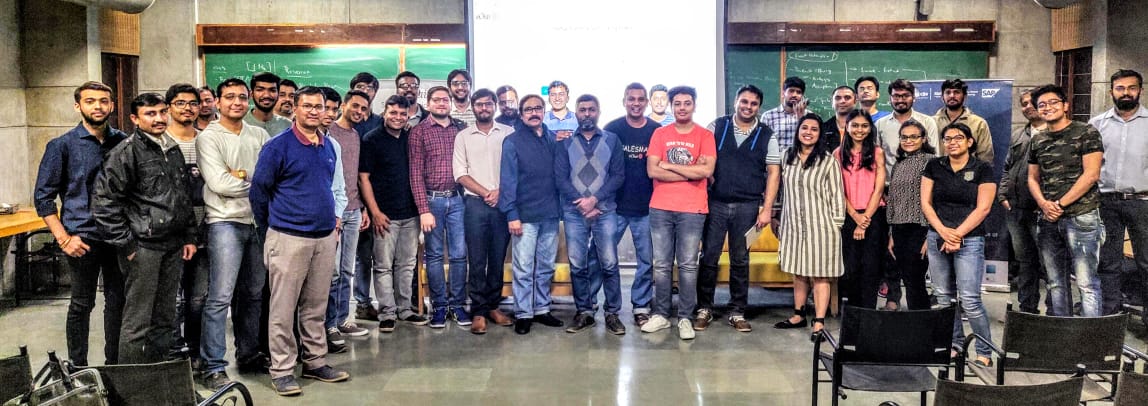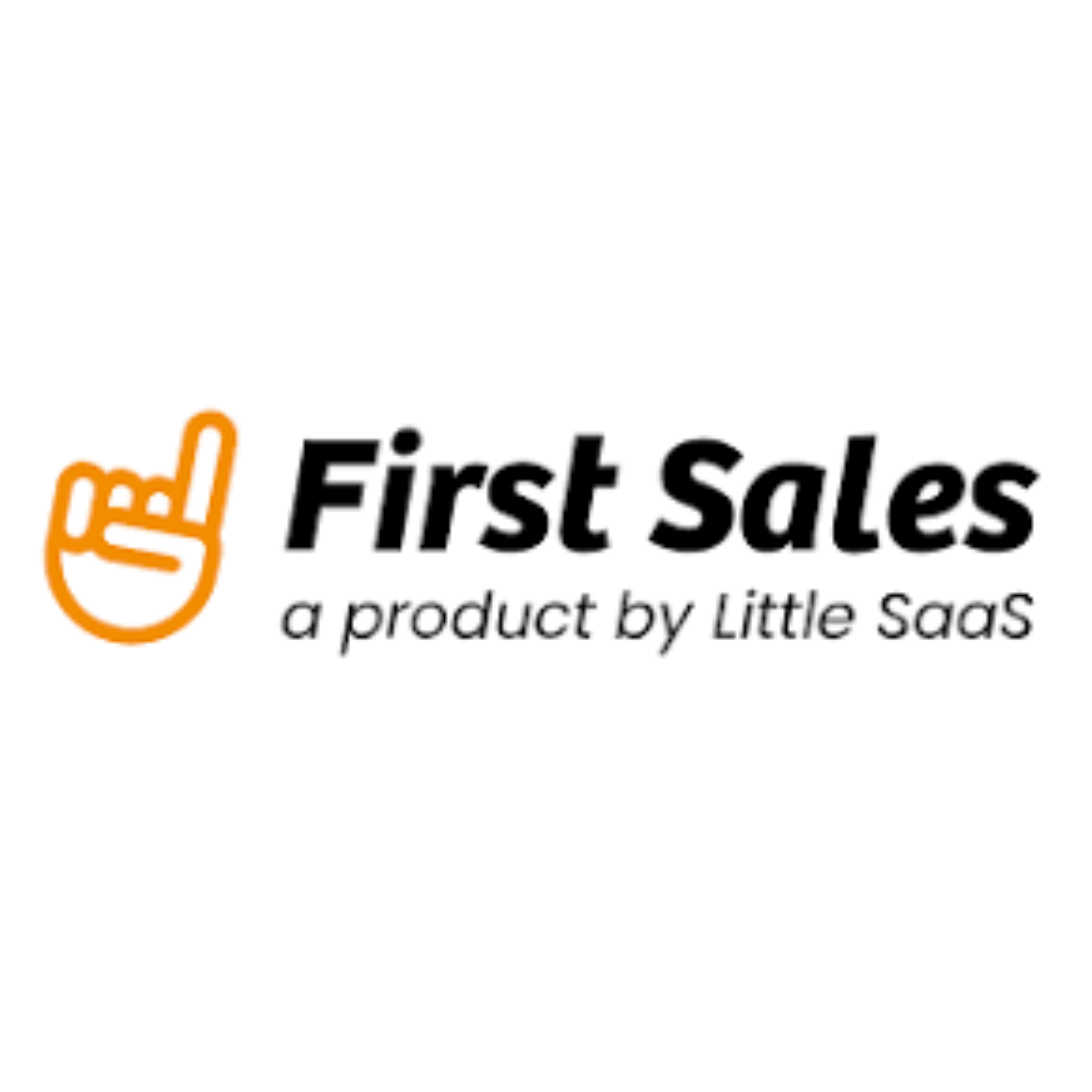Last week we hosted the 'Opportunities and Challenges in Building A Markeplace Startup' at CIIE, IIM Ahmedabad.
Get Your Annual eChai pass for Rs. 1000 per year from eChai.in to attend such engaging, insightful and content-driven programs (100+ Events) throughout the year.
I asked the founders to share their insights for building a Marketplace Startup
Nikita Maheshwari, Co-Founder, Tatkalorry

Tatkalorry is a tech-enabled platform connecting the aims to connected the Transportation fraternity with the Manufacturers & dealers fraternity to help products reach at the right time at the right price. Though the concept of technologically enabled deliveries has existed in different sectors, however in the ceramics sector it is for the first time that a platform like our has come into play.
Nikita's Recommendations:
- One should build a product that is solving the problem and adding value in form is reducing cost or faster transaction cycle rather than just merely starting on the assumption of personal biases.
- Create a tech that is needed by the market. In b2b business especially understand all the parameters and then build your tech.
- Go down to the levels of your customers. Explain to them the way they want it. It's not necessary that they would be tech savvy and use your website's sometimes the customer functions better on calls.
- Try and reach the customers at the right time and right place, they would be ready to pay the premium price for the service.
Neel Shah, Co-Founder, HobbyCook.in

Healthy, Hygienic, Homely Food is a boon and housewives in Urban India are a high-potential, under-utilized asset. HOBBYCOOK is an online platform that connects customers to authentic regional cuisines prepared by passionate home chefs in their locality.
Neel's Recommendations:
- Marketplace model is generally asset light leading to reduced investment and financial risk.
- One should focus on the team's strengths and outsource the other functions to specialists.
- By using well-known brands, the pitch to the customer becomes easier due to their popularity & brand value.
- It's best if the core of the business is not outsourced as the control over quality and USP goes away.
- With increasing size, the overheads squeeze the margins pushing companies to pivot to a new/hybrid model.
- One should be clear of the value proposition to the customer in a competitive, multi-channel market.
- With low investment required, the chance of duplication/replication in same & other markets could be quick. So growth could be through acquisition or fast + first mover advantage.
- In delivery, cost vs weight is a unique matrix that one should understand. Mobile phones are under 500g and around Rs. 5,000 vs RTD drinks are about Rs. 50 for 1kg. So the delivery cost as the percentage of product cost is an important variable to consider.
- A hyper-local marketplace is even more difficult than national level marketplace considering high delivery cost and local overheads.
- Community building is a lot more fun in building a marketplace than sole manufacturing. Also, analytics plays a significant role in understanding consumer behavior.
Rajan Patel, Founder, GreenoBazaar.com
GreenoBazaar delivers the wholesomeness of an organic, eco-friendly bazaar to your doorstep, at your convenience.
Rajan's Recommendations:
Opportunities:
- Govt is creating the conducive ecosystem by providing support to local e-commerce market places and against the monopolistic advantage of foreign-funded marketplaces.
- Marketplaces have an advantage of the reduced need to spend on heavy on overheads in brick and mortar or offline stores.
- Advantage of selling a large pool of products on online a platform with minimum fixed capital cost against a brick and mortar.
Challenges:
- Spend on marketing and promotions to gain market share with the competition is heavy and a startup inevitably needs funding unless it's product or services unique in nature or difficult to replicate.
- Absorbing logistics charges and playing in the thin margin and surviving has been a challenge for all marketplaces and will be till logistics companies evolve with optimum economics of scale and provide economical and affordable rates to marketplaces .
- To many cost involved in operating in marketplaces involved like logistics , payment gateway , packaging , marketing etc.. this becomes challenging in a price conscious market like India which is driven by heavy discounts .
- Logistics to far off areas like extreme north and north east is difficult and attracts higher logistics charges and so would be difficult to capture compared to other regions considering the returns too.
- In coming days environment policies would be stricter and a market place would need to shift to environment friendly packaging and this would be a challenge as this industry is in the nascent stage and is evolving .
- Due to the factor of covering larger market too many start ups ate now trying to enter market place model and this will make tough for the present marketplaces which are non funded to survive and retain the market share.
...
You can share your insights and/or ask questions in the comments section.
ps: Get Your Annual eChai pass for Rs. 1000 per year from eChai.in to attend such engaging, insightful and content-driven programs (100+ Events) throughout the year.




























